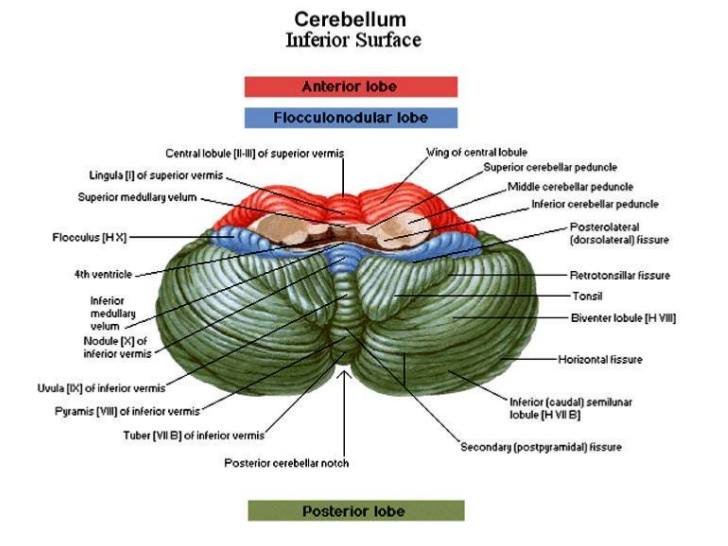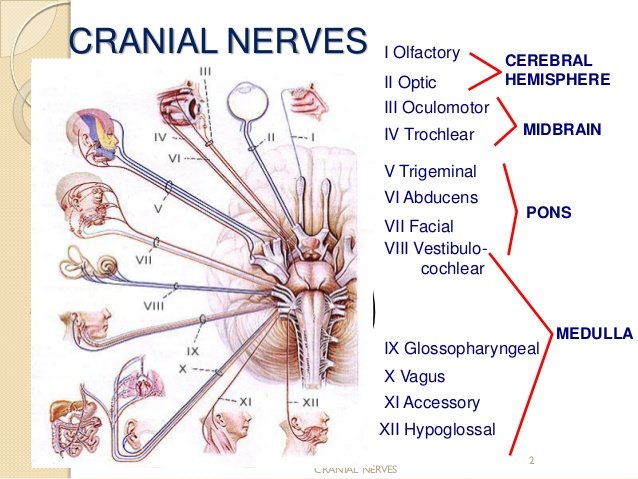Neurogenesis of brain is the process by which neurons are generated from neural stem cells. Developmental neurogenesis and adult neurogenesis differ markedly; this article is limited in scope to adult neurogenesis. In most mammals, new neurons are continually born throughout adulthood in two regions of the brain
- The subgranular zone (SGZ), part of the dentate gyrus of the hippocampus.
- The subventricular zone (SVZ) of the striatum; these neurons are interneurons, rather than projection neurons that communicate with other brain areas, and they migrate to the olfactory bulb to participate in the sense of smell. In humans, however, few if any olfactory bulb neurons are generated after birth.
Neurogenesis of Brain

20 years ago, it was thought that the brain was unable to produce new brain cells after it reaches the maturity. But, now the scientists widely accept the fact that the brain can go through neurogenesis, in which the new neurons are born, and that is happening even into adulthood, and this process can be helped along through some lifestyle and dietary changes.
Two regions of the brain, the hippocampus and the subventricular zone, both show evidence of the neurogenesis post-maturity. The hippocampus is responsible for memory and learning, and when it is not functioning right, the neurodegenerative conditions like anxiety, depression and Parkinson’s can ensue. But, now you can help to reduce that risk while simultaneously promoting the adult-stage brain cell formation if you follow these 5 steps:
Two regions of the brain, the hippocampus and the subventricular zone, both show evidence of the neurogenesis post-maturity. The hippocampus is responsible for memory and learning, and when it is not functioning right, the neurodegenerative conditions like anxiety, depression and Parkinson’s can ensue. But, now you can help to reduce that risk while simultaneously promoting the adult-stage brain cell formation if you follow these 5 steps:
- Maybe it sounds like a cliché, but the most effective way to promote the neurogenesis in the brain is to exercise regularly. Getting the heart pumping and the blood flowing by biking, running, or swimming is an amazing way to increase the levels of BDNF or brain derived neurotrophic factor and the GDNF or glial cell line-derived trophic factor, the two most important factors that promote the neurogenesis.
The endorphins that is released through the cardiovascular exercise helps to minimize the levels of cortisol, the stress hormone, while increasing the levels of testosterone, which like GDNF and BDNF helps promote the neurogenesis. These exercise-induced growth factors and hormones are critical as the person ages, because they act like anti-aging, cognition-boosting nutrients.
- The scientific benefits from the meditation are established, and you don’t need to be religious to get the benefits from it. Many evidences suggest that the meditation can help to increase the gray matter density of different regions of the brain, including the hippocampus.
By helping persons to focus more on the present, and not on the past and future, the meditation helps balance the brain chemicals and clears the mind. One study has shown that the meditation helps to activate some integrative functions in the brain, promoting both long- and short- term neural changes.
The night meditation can help up-regulate the production of melatonin in the body, a sleep hormone that is directly connected to the neurogenesis. Amishi Jha that comes from the University of Miami advices “mindfulness-based mind-fitness training,” which is a method that involves focusing on one specific object, like a particular body sensation, to improve the brain function and structure, and ultimately one’s intelligence.
- Eating well, maybe looks obvious, but many people don’t know what this really means. The brain is made up of about 60% fat that necessitates that the fat plays an important role in the nutrition. But many people still view the fat as bad, avoiding it in favor of the low-fat or fat-free food options packed with some artificial flavor additives and chemical sweeteners.
The Omega-3 fatty acids are a very important fat to consume it regularly for improved brain health, just like are the healthy saturated fats like the palm oil or coconut oil. The Docosahexaenoic acid is a critical fat component, which is important for the brain to produce new brain cells.

4. Sleep, sex and sunlight.
The sleep is important for healthy brain function. It turns out that the sleep deprivation reduces the hippocampal neurogenesis, throwing the hormone balance out of whack and also cluttering the brain. One recent study that was published in the journal Current Topics in Behavioral Neurosciences discovered that the sleep disruptions exceeding 24 hours inhibit cell proliferation, and neurogenesis in some cases.
The natural exposure to sunlight is another vital factor in the neurogenesis, as the vitamin D, which is produced when the unblocked skin is exposed to the rays from the sun, increases the levels of GDNF expressions in the brain and of serotonin (a brain neurotransmitter). The optimal exposure to the UV or ultraviolet rays from the sun ranges between ten and fifteen minutes during the summer.
And here is the sex that helps to reduce the stress, while at the same time boosts the levels of some “feel-good” transmitters in the brain. One study from 2010 published in the journal PLoS ONE discovers that the sex helps minimize both corticosterone levels and anxiety while promoting the adult neurogenesis and stimulates the growth of dendritic spines in the hippocampus.

- Cannabis and psilocybin. Many psychoactive components, including those in the cannabis (CBD and THC) and “magic” mushrooms (psilocybin), have also been show that help in the development of new brain cells. It turns out that the Psilocybin increases the hippocampal neurogenesis and also increases the brain’s ability to “unlearn” some negative fear responses, and that is the reason why the sufferers of PTSD or post-traumatic stress disorder usually report the benefits from psilocybin.
And the cannabis, which is now increasingly legal throughout the United States, have compounds like the CBD or cannabidiol and THC or tetrahydrocannabinol that match with the receptors in the brain to promote the neurogenesis and reduce the anxiety.
References
- Faiz M; Acarin L; Castellano B; Gonzalez B (2005). “Proliferation dynamics of germinative zone cells in the intact and excitotoxically lesioned postnatal rat brain”. BMC Neuroscience. 6: 26. doi:10.1186/1471-2202-6-26. PMC 1087489 . PMID 15826306.
- Oomen CA; Girardi CE; Cahyadi R; et al. (2009). Baune, Bernhard, ed. “Opposite effects of early maternal deprivation on neurogenesis in male versus female rats”. PLoS ONE. 4 (1): e3675. Bibcode:2009PLoSO…4.3675O. doi:10.1371/journal.pone.0003675. PMC 2629844 PMID 19180242.
- Ernst, A; Frisén, J (January 2015). “Adult neurogenesis in humans- common and unique traits in mammals”. PLOS Biology. 13 (1): e1002045. doi:10.1371/journal.pbio.1002045. PMC 4306487 . PMID 25621867.
- Webster, Mark K.; Cooley-Themm, Cynthia A.; Barnett, Joseph D.; Bach, Harrison B.; Vainner, Jessica M.; Webster, Sarah E.; Linn, Cindy L. (2017-03-27). “Evidence of BrdU-positive retinal neurons after application of an Alpha7 nicotinic acetylcholine receptor agonist”. Neuroscience. 346: 437–446. doi:10.1016/j.neuroscience.2017.01.029. ISSN 1873-7544. PMC 5341387 . PMID 28147247.
- Drapeau, E.; Mayo, W.; Aurousseau, C.; Moal, M.L.; Piazza, P. & Abrous, D.N. (2003). “Spatial memory performances of aged rats in the water maze predict levels of hippocampal neurogenesis”. PNAS. 100 (24): 14385–14390. Bibcode:2003PNAS..10014385D. doi:10.1073/pnas.2334169100. PMC 283601 . PMID 14614143.
- Marrone, D.F.; Ramirez-Amaya, V. & Barnes, C.A. (2012). “Neurons generated in senescence maintain capacity for functional integration”. Hippocampus. 22 (5): 1134–1142. doi:10.1002/hipo.20959. PMC 3367380 .
- von Bohlen und Halbach O (2010). “Involvement of BDNF in age-dependent alterations in the hippocampus”. Front Aging Neurosci. 2. doi:10.3389/fnagi.2010.00036. PMC 2952461 . PMID 20941325.
- Praag H, Christie BR, Sejnowski TJ, Gage FH (1999). “Running enhances neurogenesis, learning, and long-term potentiation in mice”. Proc Natl Acad Sci U S A. 96 (23): 13427–31. Bibcode:1999PNAS…9613427V. doi:10.1073/pnas.96.23.13427. PMC 23964 . PMID 10557337.
- Vadodaria, Krishna C.; Gage, Fred H. “SnapShot: Adult Hippocampal Neurogenesis”. Cell. 156 (5): 1114–1114.e1. doi:10.1016/j.cell.2014.02.029.